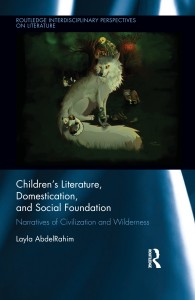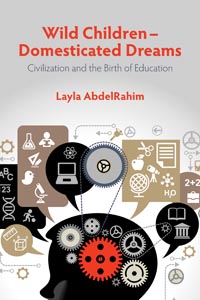I am an independent scholar and author with no institutional funding. Please, consider supporting me on Patreon so I can continue to do the work. Thank you!
Book review by Sarat K. Colling
“This book is relevant across disciplines. It gets to the root of many socio-environmental problems, provides a useful analysis of how these systems operate, and offers solutions for change. It will appeal to those interested in the connection between children’s literature and socialization and the transmission of “civilized memes and genes” through literacy. It is a much-needed addition to studies in areas such as Education, Geography, Environmental Studies, Philosophy, Comparative Literature, English literature, Anthropology, Globalization, Sociology, and Interdisciplinary Studies. For both educators and activists, it opens the door to new teaching tools, e.g., the critical tools to interrogate the narratives we accept and then present to children–some of them appearing deceptively innocuous–and revaluates whether they are really serving us.
The study will also be of interest to Critical Animal Studies scholars, with topics such as the transformation of humans and nonhumans into resources, and how narratives can help overcome speciesism. As AbdelRahim claims, the institutions of civilization are rooted in classism, sexism, racism, and speciesism. In her words, “this intersectionality works to solidify oppressive and discriminatory practices and the epistemological classification system on which this paradigm is built has serious material repercussions for whole classes of beings” (AbdelRahim, p. 9).
Children’s Literature, Domestication, and Social Foundation is richly comparative, experientially compelling, informative, thought-provoking, and well-supported. Digging deep into our social foundations, it both critiques and celebrates science and folklore, while providing a new perspective that is both a treat and a challenge to those who love literature. It is a compassionate call to the readers to transform their surroundings in the spirit of wildness, love, and peace. This world is much like the borderless home that Jansson dreams of, “where sorrow can be cured by acceptance, where healing comes through movement and Moominmamma’s love, and where Snufkin destroys the incarcerating power of literacy and language and reinstates authentic communication and understanding with his song” (AbdelRahim, p. 109). To truly become free, it is imperative to re-examine the stories that have made up our lives, indoctrinated us into a war on wilderness, and caused alienation from each other and our own wildness within. How would life be different if we moved from ordered civilization to a wild, harmonic chaos? As AbdelRahim asks, would children still need to be told “…that a world of careless play and agency over one’s mind and imagination are to be forsaken when they move on to the ‘real’ world?” (p. 220)” by Colling, S. K., in the International Journal of Social Ecology and Sustainable Development (IJSESD)10(1); January 2019.
Full review in PDF format can be accessed HERE
For full HTML version click HERE
Filed in: Uncategorized.









